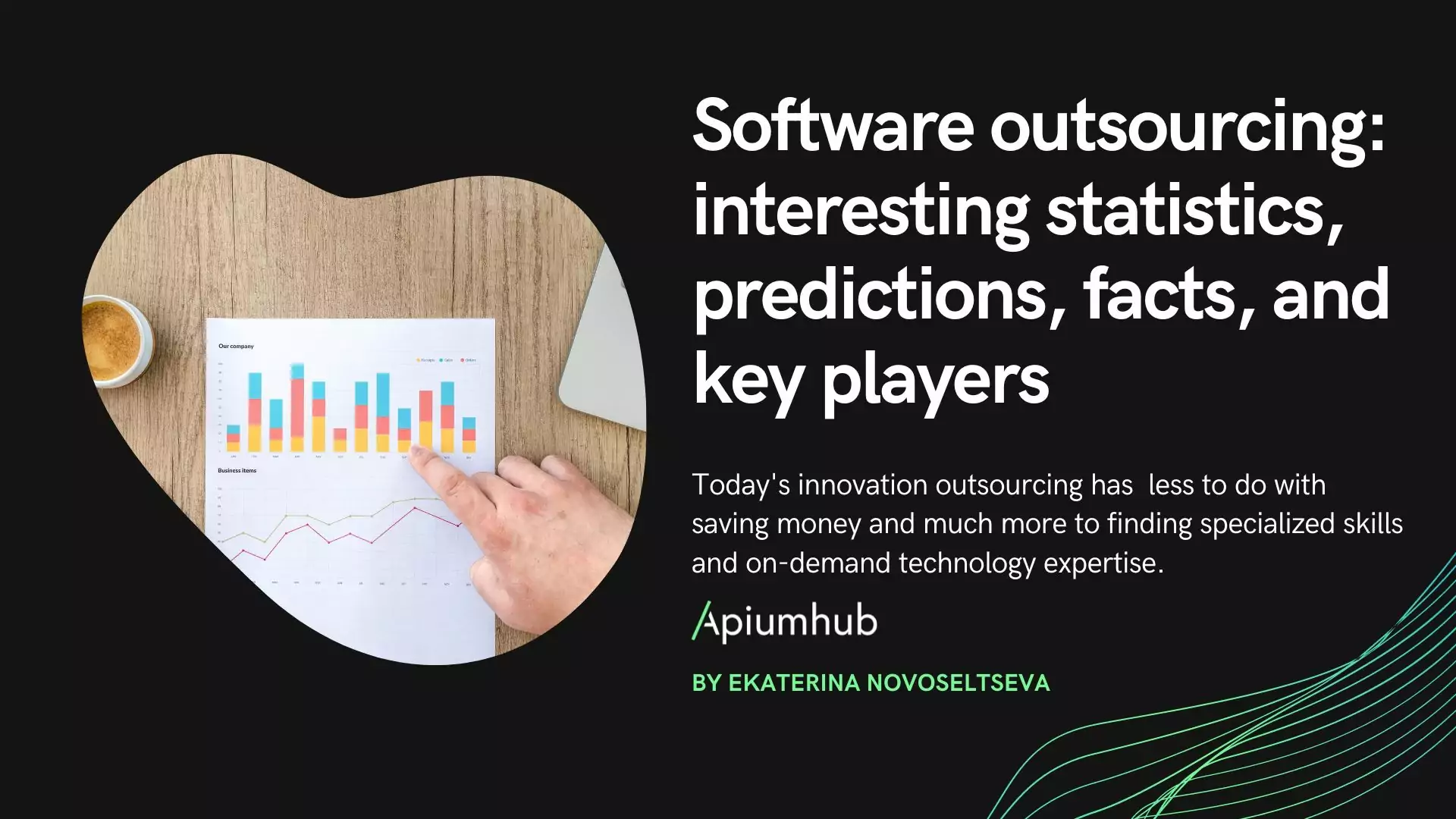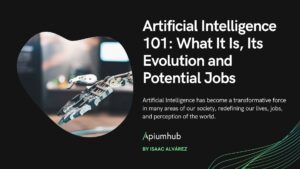Table of Contents
Artificial Intelligence is really taking over the world. AI is everywhere now, especially in e-commerce sector; what we are focusing on today in this article. Read on to learn more about the importance of artificial intelligence in eCommerce.
Artificial intelligence in eCommerce: statistics & facts
First, let’s look at the e-commerce industry in general:
Source: emarketer
Impressive, right? E-commerce is definitely worth looking at. Let’s continue with Artificial intelligence to see how they are actually linked.
Today, companies like Alibaba, Rakuten, eBay, and Amazon are using Al for fake reviews detection, chatbots, product recommendations, managing big data, etc. and later on we will look at it more in details.
Now, let’s go over some interesting data from a recent Ubisend report:
• 1 out of 5 consumers is willing to purchase goods from a chatbot.
• And these consumers are opened to spend up to £314.74.
• 40 percent of consumers use chatbots to look for offers and deals.
• Google invested £400 million acquiring DeepMind; Artificial intelligence company
Artificial intelligence has 3 key elements: data mining, NLP, and ML. These elements help e-commerce businesses improve results. With Artificial Intelligence, machines are learning how to assist us and how to perform manual tasks and what is fascinating is that they are doing their job incredibly good, allowing us to focus more on a strategic level of business. Now, finally we have that time that we hadn’t have before, now we can focus on creating something more and forget about doing repetitive tasks.
Artificial intelligence is a trend, yes, definitely, but it gives us so many opportunities that it is just impossible to cover them all in one article. Let us focus on the most powerful and trendy solutions. And one of them is visual and voice search:
Search engines are also working hard in this field, improving the image search technology. This new feature really pushes the apparel and fashion e-commerce forward, and not only that! Look at retail and pharma industries. For smaller companies this is a huge push towards growth, an opportunity they haven’t had before. And in this case, it is not that much about the technology, rather about the rankings in search engines and marketplaces.
For years, metadata and tagging were one of the strongest indicators for search engines to identify the right image or document. And yes, in most of the cases it was done manually. But when it comes to AI, it automates image classification and product tagging, ensuring greater alignment in search results based on improved attribute identification. If we think about that, actually, images themselves become a data source.
Have you heart of “visual listening”? Well, just to give you a very simple example, now brands can identify all images and videos related to their brand, not just those that have the brand tag, but all those that actually feature the brand. Today, many consumers share their brand experiences; both positive and negative through images, videos, etc., however, they don’t always tag those images. According to Forbes, 80 percent of social media images that include a brand’s logo do not mention the brand or product in the accompanying text. Until now it was a problem, but with AI, brands can forget about this issue and can successfully collect all the data in an automatic way.
Artificial intelligence in eCommerce: use cases
There are other ways of using artificial intelligence in eCommerce and in this article, we will show you powerful and practical ways to do that!
Well, as you may guess, most popular usage of artificial intelligence in eCommerce is to better understand customers, generate new leads and provide an enhanced user experience. As e-commerce has become the standard method of purchasing goods and services, leading eCommerce brand intensively invest their money in exploring how AI can enhance brand competitiveness and customer loyalty.
So, let’s look at the most popular applications of artificial intelligence in eCommerce so far ( source: techemergence):
1. AI assistants and chatbots
They help brands with responding to customer inquiries: as written as voice ones. Also, they are used providing product recommendations through NLP ( good examples can be Alibaba and eBay)
2. Smart logistics
AI automates warehouse operations and delivery process. ( JD.com is one of the examples )
3. Recommendation engines
Artificial intelligence is capable of analyzing customer behavior on websites. It uses algorithms to predict what products may be liked by customers and provide recommendations. ( Amazon can me a brilliant example).
Artificial intelligence in eCommerce: case studies
Amazon
Alexa is one of Amazon’s most popular and most famous AI product. It helps drive the algorithms that are essential to Amazon’s targeted marketing strategy. AI allows Amazon to predict what products will be the most demanded to provide customized recommendations based on customer searches. And according to rejoiner, Amazon’s recommendation engine drives 35 percent of total sales.
JD.com
Beijing-based JD.com partnered up with Siasun Robot & Automation Co Ltd. to use automation technology, such as robots, to improve warehouse operations. The key idea was to improve the speed and efficiency of product sorting and delivery in warehouses, cutting down the costs and increasing revenue. JD.com aims to use Artificial intelligence to reduce the number of employees from approximately 120,000 to 80,000 over a decade to increase efficiency, by reducing manual work and therefore increase the profit margin.
Alibaba
As for Alibaba, probably, first what comes to our mind are AI assistants – Tmall Genie and Ali Assistant. Basically, by using AI, Alibaba wanted to enhance its competitive edge. It’s customer service chatbot processeses 95 percent of customer inquiries, both written and spoken ones, and it is very powerful now. What is more, Alibaba says that AI algorithms help to drive internal and customer service operations including smart product and search recommendations. Also, Alibaba uses AI to help map the most efficient delivery routes. Works quite well! And Alibaba claims that smart logistics have resulted in a 10 percent reduction in vehicle use and a 30% reduction in travel distances. Seems like it was the right investment for them!
eBay
eBay sees AI as a way to maintain consumer interest and a competitive edge. The eBay Shopbot helps users easily find products that they are interested in using NLP. Also, customers can communicate with the bot via text, voice or using pictures taken with their phone. Right now, machine learning is an integral component of eBay’s business strategy.
ASOS
Fashion retailer ASOS continues investing in AI and voice recognition systems to influence buyer behavior. Also, it has already heavily invested in image recognition technology by introducing a visual search capability which allows ASOS app to match users’ photos with similar clothing sold online.
Rakuten
Japan’s largest e-commerce site, Rakuten, continues to invest in AI to better predict customer behaviors as it is critical to the e-commerce success. Right now, with their Rakuten Institute of Technology, they are able to analyze their 200 million products to forecast sales with a high degree of accuracy. Now they are also capable of segmenting buyers more accurately using real-time data. In Rakuten Fits Me app, they use Image-recognition technology with the objectives to improve customer satisfaction and sales productivity.
Artificial intelligence in eCommerce: benefits
And now let’s look at the main benefits of using AI in e-commerce.
1.Customer-centric visual search
Consumers are often disappointed with e-commerce experience because the product results showed are often irrelevant. To tackle this problem, AI uses natural language processing to narrow, contextualize and improve search results for online shoppers. Also, it allows to have visual search capabilities, finding and matching products. Also, AI enables shoppers to discover complementary products and enhance customer experience. Now, consumers may take a picture of a friend’s new shoes or new gym clothes, upload it and then AI enables consumers to easily find similar items through e-commerce stores. Sounds cool, right? Well, we have it, it is available for us! For example Amazon has this option, which allows you to point at product that you like and Amazon will identify it and give you the results you will most probably like because it will be exactly what you were searching for. I believe, that AI makes it as easy as possible for us to purchase products that we love online!
2. Retarget potential customers and improve the sales process
According to Conversica, at least 33% of marketing leads are not followed up by the sales team. This means that pre-qualified potential buyers interested in a product are just left behind. Also, many teams are overloaded with unmanageable customer data that they do little or nothing with. And that’s when AI is a real necessity. Artificial intelligence could help with enhancing the sales cycle, by tailoring your problem-solving solutions and creating a strong sales message that reaches consumers at the right time on the right platform. Nowadays, there are many AI systems that enable NLP and voice input, for example, Siri, Alexa, etc. This allows a CRM system to answer customer queries, solve their problems and even identify new opportunities for the sales team.
To better understand what I mean, let’s look at a very good example – The North Face, a large e-commerce retailer. They use IBM`s AI solution Watson to better understand their consumers. They can help their users find their perfect clothes, by asking the customer questions such as “where and when will you be using your running clothes? “and customers can answer by saying it or writing it. IBM’s software then scans hundreds of products to find perfect matches based on real-time customer input and does additional research to find out the weather conditions in the that area, etc.
3. New level of personalisation
Now we can find a lot of AI solutions, for example one of the them that I really want to mention is Boomtrain. This company analizes different touch points to help the business analyse how customers are interacting online: via mobile app, web, email, etc. And AI engine is monitoring all devices and channels to create a universal customer view. So, not just one channel, but all the channels. And of course, it helps e-commerce retailers to deliver a seamless customer experience across all platforms. It will help to send relevant messages at the right time.
4. Chatbots and virtual assistants
E-Commerce is now focused on user experience. The use of artificial intelligence through the application of “chatbots” is just one way to drive the conversation in the era of conversational commerce. And it is actually more than that, chatbots can automate order processes. Also, they are an effective and low-cost way of providing 24/7 customer service and collect valuable data and track behavior. With chatbot, e-commerce sites can increase conversion rates by tailoring the online experience for the consumer. Again, one of the most famous examples is, of course, Amazon’s virtual assistant, Alexa. It has integrated into Amazon’s own products as well as products from other manufacturers. Virtual assistants are expected to impact customers purchase and provide a creative opportunity for e-commerce retailers to take advantage of.
7. Improve recommendations for customers
Let’s highlight this benefit again: with AI brands can more intelligently and efficiently predict customer behavior and demand, and offer relevant and helpful recommendations. Excellent example is Starbucks, it uses AI to analyse all the data it has gathered to deliver more personalised suggestions. The algorithm takes into account: customer’s information, customer preferences, purchase history, third-party data and contextual information.
8. Intelligent agents
New intelligent agent negotiation system has become a popular tool used in e-commerce. There are 3 main use cases: matching buyers and sellers; facilitating transactions; and providing institutional infrastructure. And guess what?! Everything in an automatic way!
9. Filter fake reviews
Unfortunately, fake reviews became an issue for online retailers and e-commerce shops. And according to Dimensional Research’s 90% of respondents said that positive online reviews influence their buying decisions. Also, 86% said that their buying decisions were influenced by negative online reviews. However, as we know there are fake reviews published by competitors, bots, etc. So, how AI can manage this problem? Nowadays, many e-commerce business use artificial intelligence to fight astroturfing by putting more emphasis on verified and helpful reviews. For example, Amazon uses AI to combat fake product reviews and inflation of their popular star ratings. Their AI focuses on prominence and weight of verified customer purchase reviews and boost them. AI also takes into account hose reviews that are marked as helpful by other users.
10. Automation
AI doesn’t mean that the robots are taking over. Nowadays a lot of people are scared that everything will be done by robots in the nearest future. No, not really! Robots offer opportunity to retailers to provide exactly what the customer wants, when they want it, by using technology and algorithms. As firms in the e-commerce industry continue to expand and that means having a growing number of customers, automation becomes a must and became one of their top investment priorities for e-commerce stores. What is more, as we know, when eCommerce business starts growing, the number of repetitive tasks grows as well. Robots can take them over; everything from publishing new products on multiple channels to scheduling sales, giving discounts to loyal customers, etc.
According to Martechtoday, Ocado reportedly planned to spend £175 million ($232 million) for its robotics and automation system this year, Amazon committed $5 billion in its tech investments in India alone, and Alibaba is looking into pouring $15 billion into research and development spending over the next three years.
To find more info about the benefits of AI in e-commerce, read Ubisend article.
Artificial intelligence in eCommerce: conclusion
In conclusion I want to say that AI is on the rise in the e-commerce industry, however, it is still far from being perfect. E-commerce firms continue to improve their AI tools to better match market demand. They also partner up with other companies to merge their competencies in AI and create more sophisticated solutions. We believe, that Artificial Intelligence in eCommerce will impact transactions, customer retention, satisfaction, efficiency and many more. AI is changing the way we buy and sell online.
If you are working on an e-commerce project and you need help with software development, let us know! We would be happy to know more about your project!
I hope you found this article useful! If you are interested in the latest news about artificial intelligence in eCommerce, I highly recommend you to subscribe to our monthly newsletter here.
If you found this article about artificial intelligence in eCommerce, you might like…
- Top business blogs to read
- 40+ unbelievable artificial intelligence statistics on how B2B Sales will change next year
- Smart city projects and leaders to keep an eye on
- Human-centered innovation
- Barcelona makes it to the top 5 of innovation hubs
- Blockchain technology: use cases, statistics, benefits, startups & events
- Barcelona; one of the best smart cities in Europe
- Disruptive innovation to track
- The era of unicorns
- Top 20 promising startups in Barcelona
- IOT projects that may change the world
- AI can control the “Fake news” market
- Artificial intelligence – in math I trust
Author
-
Ekaterina Novoseltseva is an experienced CMO and Board Director. Professor in prestigious Business Schools in Barcelona. Teaching about digital business design. Right now Ekaterina is a CMO at Apiumhub - software development hub based in Barcelona and organiser of Global Software Architecture Summit. Ekaterina is proud of having done software projects for companies like Tous, Inditex, Mango, Etnia, Adidas and many others. Ekaterina was taking active part in the Apiumhub office opening in Paseo de Gracia and in helping companies like Bitpanda open their tech hubs in Barcelona.
View all posts
















4 Comments
george Devin
AI is everywhere now, especially in e-commerce sector; The content you have shared here extremely useful. I was in search of this kind of article and i got it here. Thanks.
Andrew German
Nice article, I really liked your take on artificial intelligence. Artificial intelligence has made customer interaction easier on daily basis. Ps if you want more then checkout
Taimur khan
Lovely article! would love to read more such articles.
ai course
Staggering information, colossal and superb game plan, as system extraordinary stuff with cautious appraisals and assessments, heaps of uncommon information and inspiration, the two of which I want, in light of offering such obliging information here…….
AI Course